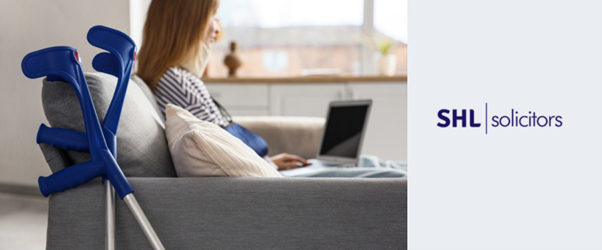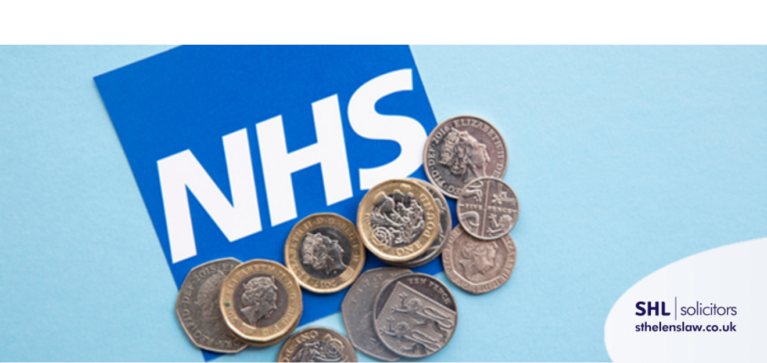Think you may be eligible to claim against the NHS?
That’s you, and many thousands of others.
In a recent government-commissioned report – by the professor of surgery and former Labour minister, Lord Darzi – it was revealed that NHS negligence claims have nearly doubled over the last decade, surging from 14,615 in 2011/12 to a huge 28,780 in 2023/24.
Aside from pensions and nuclear decommissioning, according to the report, these claims are now the largest liability on the government’s balance sheet – with compensation payouts totalling an eye-watering £2.8 billion over the last 12 months.
To put that into perspective, that’s 1.7% of the entire NHS budget.
This rise in claims has also been corroborated by NHS Resolution’s Annual Report.
NHS Resolution is the body that manages all clinical negligence claims against the NHS. Over the last year, they’ve recorded a 3% increase in claims – from 10,567 in 2022/23 to 10,834 in 2023/24. This was across all areas of the NHS, but the highest numbers were seen in emergency medicine, obstetrics, orthopaedic surgery and general surgery.
Their report also stated that, despite efforts to resolve these claims early, the financial burden of fighting them is also increasing. Claimant legal costs went up by 11% to £545m in the last year, NHS legal costs rose by 6.4% to £169m, and £2.1bn in damages was paid out to claimants.
Why the seismic surge in claims?
Some people have suggested this steady and significant increase in NHS claims for negligence could be attributed to awareness. Over time, patients have simply become more aware of the complaints process and their rights regarding clinical negligence compensation.
Whilst this may be true, Darzi’s report comes to a much more damning conclusion – that this surge in claims simply indicates the dire state of the NHS.

Placed under the chapter on ‘quality of care’, the report’s section on clinical negligence paints a pretty dismal picture of England’s health and care services.
On the whole, the NHS was described as being in a ‘critical condition’.
A&E is in an ‘awful state’, waiting times for hospital procedures have ‘ballooned’, and cancer care still lags behind other countries. Due to staff shortages, a lack of funding, and the ongoing impact of the pandemic, too many mistakes are being made – which, ultimately, is why complaints have doubled and clinical negligence claims are at an all-time high.
Have you fallen victim to this clinical negligence endemic?
If you’ve suffered in any way due to poor quality of care or a clinical error within the NHS, you too could be eligible to make an NHS negligence claim. Common examples include:
- medication errors
- missed or delayed diagnosis
- misdiagnosis
- a delay in or failure to treat
- surgical errors
- lab mistakes
- negligent personal care
But this certainly isn’t an exhaustive list.
It doesn’t matter how badly you’ve been affected by the act of negligence. Whatever the nature or severity of your condition, from a small injury that healed relatively quickly to a missed diagnosis with life-changing repercussions, you should be able to claim.
It also doesn’t matter where you received the treatment – whether it be at a GP practice, a hospital, an independent service (such as a mental health clinic or physiotherapy centre) etc. All of these organisations have a ‘duty of care’, and if that duty was breached – and you’ve experienced harm or suffering as a result – you may be entitled to compensation.
The only condition is that you must submit the claim within three years of the negligent act, or the date at which you became aware that someone was at fault (i.e. the date of knowledge).

Is it worth claiming?
Following an incidence of clinical negligence, you may be going through a tough time. Perhaps you’re in a lot of pain or discomfort? Maybe it’s taken its toll on your mental health? Or has had a financial impact due to your sudden inability to work?
Right now, we appreciate, making an NHS clinical negligence claim may feel like the least of your concerns. But in most cases, it’s advisable to do so.
- Financial support
The reality is, illness and injuries can be expensive.
Whether you’re having to take time off to recuperate, need to make costly alterations to your home, or simply have to pay for transport to and from the hospital, it can all add up.
Compensation can be a great help at such a difficult time, used to cover these unexpected costs and bills, support your day-to-day life and get you well on the way to recovery.
- Zero repercussions
Making a clinical negligence claim won’t have any negative consequences.
By law, you can’t be refused treatment due to your claim. Any ongoing treatment won’t be delayed or affected – although you do have a right to ask for your care to be moved.
There’s also no need to worry about taking money from the NHS budget or impacting other patients’ healthcare. Claims against the NHS are all handled by NHS Resolution – a separate body with its own funds.
The only impact your claim may have on the NHS is a positive one – helping to highlight the safety issues that led to your injury, and prompting change to stop it from happening again.
- A straightforward claims process
Claiming isn’t the long-winded stressful experience that you might expect.
According to NHS Resolution’s latest report, 81% of NHS claims in 2023/24 were resolved outside of the courtroom – typically using simple dispute resolution methods, such as mediation. What’s more, 52% were successful and resulted in the payment of compensation.
Timeframes can vary from around 12-36 months. But by recruiting our NHS negligence solicitors, you can sit back and focus on your recovery. We’ll take care of everything on your behalf, aiming to achieve the best possible outcome in the easiest possible way, and can even arrange interim payments in the meantime.

Want to find out more?
If you think you may have fallen victim to NHS clinical negligence and are considering joining the thousands of patients who have already made a claim, please don’t hesitate to contact us.
Here at St Helens Law, clinical negligence is one of our key specialist areas, and we’re always on hand to help. Either call us on 01744 742360 or fill out our online contact form and we’ll get back to you as soon as possible to arrange a free no-obligation consultation.
This is the perfect opportunity for us to answer any questions, address any concerns you may have, and learn more about your experience of NHS negligence. Using this information, we can then advise on your eligibility to make a claim against the NHS and your chances of success.
Get in touch today!


